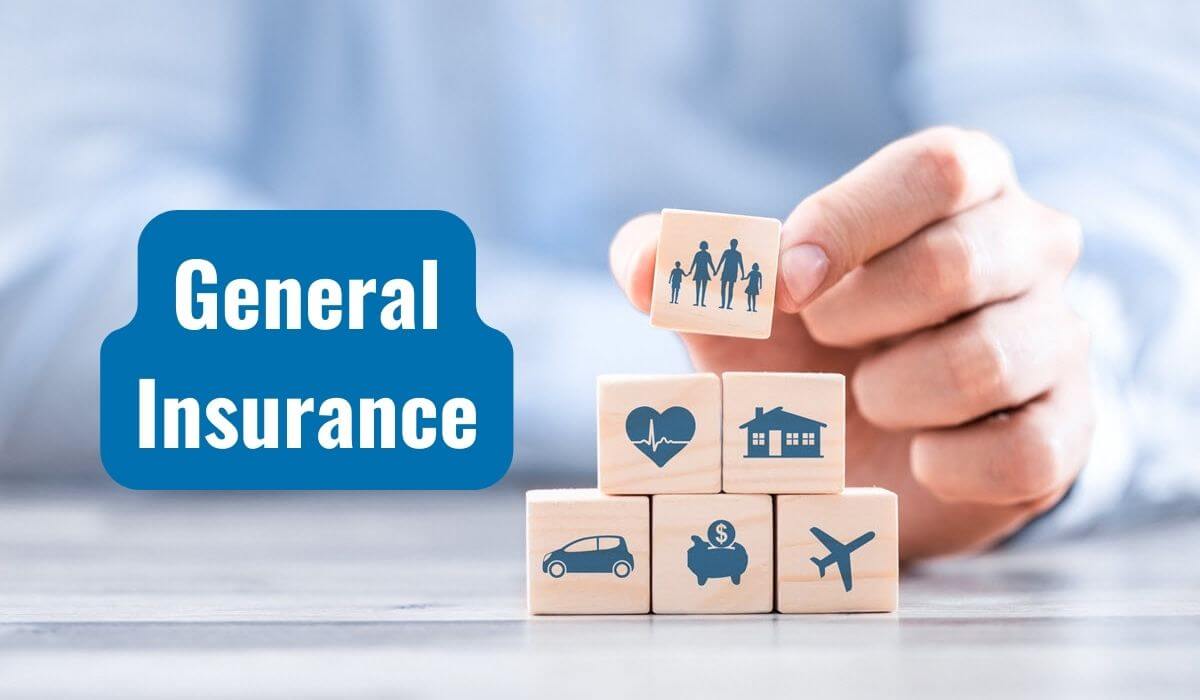What to Expect During a Doctor Visit After a Car Accident
After the trauma of a car accident, seeking medical attention is paramount. A prompt doctor’s visit is crucial for assessing injuries, initiating treatment, and ensuring a smooth recovery. During this visit, the doctor will perform a thorough physical examination, document your symptoms, and order necessary diagnostic tests. Don’t downplay your pain or injuries; even seemingly minor discomfort can indicate underlying issues that require medical attention.
The doctor will inquire about your accident details, including the impact force, direction of the collision, and any body parts that struck the vehicle’s interior. They’ll also conduct a physical examination, checking for visible injuries, swelling, tenderness, and range of motion. They’ll pay particular attention to common accident-related injuries such as whiplash, sprains, strains, and fractures.
The doctor will also ask about your symptoms, both physical and emotional. Be thorough and don’t hesitate to mention any discomfort, pain, or psychological distress you’re experiencing. Remember, even seemingly unrelated symptoms can be connected to the accident and should be reported.
Based on their examination and your symptoms, the doctor may order diagnostic tests to confirm or rule out specific injuries. These tests may include X-rays, MRIs, or CT scans. These imaging techniques provide detailed views of internal structures, allowing the doctor to assess the extent of any injuries and develop an appropriate treatment plan.
The doctor will discuss their findings with you, explaining the diagnosis and outlining the treatment options. They’ll provide guidance on medications, physical therapy, or any other necessary interventions. It’s essential to follow the doctor’s recommendations carefully to promote optimal healing and prevent long-term complications.
Doctor Visit After Car Accident: Why It’s Essential
If you’ve been in a car accident, it’s imperative to see a doctor promptly, even if you don’t feel injured. Some injuries, like concussions and whiplash, may not show symptoms immediately but can have lasting consequences if not treated early. A medical evaluation can uncover these hidden injuries, ensuring proper care and preventing complications down the road. Moreover, a doctor’s visit establishes a medical record of your injuries, which can be invaluable for insurance purposes.
Benefits of a Doctor Visit After a Car Accident
Seeking medical attention after a car accident offers several crucial benefits:
*
Early Diagnosis and Treatment
Prompt medical attention can identify and treat injuries that may not be immediately apparent. Injuries like concussions, whiplash, and internal bleeding can have severe consequences if left untreated. A medical evaluation will assess the extent of your injuries and provide appropriate treatment, reducing the risk of long-term complications.
*
Prevention of Complications
Untreated injuries can lead to further complications, such as chronic pain, instability, and disability. A timely medical visit ensures that injuries are treated promptly, preventing these complications from developing.
*
Establishment of Medical Record
A doctor’s visit creates a medical record that documents your injuries and treatment. This record is essential for insurance purposes, as it provides evidence of your injuries and the necessity of medical care. It also serves as a valuable reference for future medical treatment or legal proceedings.
*
Support for Insurance Claims
The medical record established by a doctor’s visit supports insurance claims by providing objective evidence of your injuries and the need for medical treatment. This can streamline the insurance process and ensure you receive fair compensation for your injuries.
*
Peace of Mind
Knowing that you’ve received a thorough medical evaluation after a car accident can provide peace of mind. You’ll have the reassurance that any injuries have been identified and are being properly treated, minimizing the potential for future complications and uncertainty.
Doctor Visit After Car Accident: What to Expect and What to Bring
If you’ve recently been involved in a car accident, you may be wondering what to expect when you go to the doctor. A doctor visit after a car accident is an important step in the recovery process, as it can help you identify and treat any injuries, ensuring your optimal well-being.
What to Expect
During your doctor visit, you can expect to be asked about your symptoms, medical history, and the accident itself. The doctor will likely perform a physical examination to check for any visible injuries. Depending on your symptoms and the doctor’s findings, you may need additional tests, such as X-rays or MRI scans. These tests can help the doctor rule out any serious injuries and develop a treatment plan.
What to Bring
When you go to the doctor after a car accident, it’s important to bring certain essential items. These include:
- Insurance information: Your insurance company will need to be informed about the accident, and they will need your policy information to process your claim.
- List of current medications: This will help the doctor determine if any of your current medications could be interacting with any new medications they may prescribe.
- Medical records related to previous injuries: If you have any pre-existing injuries, it’s important to bring any relevant medical records to your appointment. This will help the doctor understand your overall medical history and make informed decisions about your treatment.
Other Important Considerations
In addition to bringing the necessary items, there are a few other things you should keep in mind when you go to the doctor after a car accident:
- Be prepared to discuss your symptoms: Make sure you can clearly articulate your symptoms to the doctor. Don’t downplay any pain or discomfort you’re experiencing.
- Be honest about your medical history: Don’t hide any relevant medical information from the doctor. This includes any pre-existing conditions, injuries, or medications you’re taking.
- Ask questions: Don’t be afraid to ask the doctor any questions you have about your injuries, treatment plan, or recovery process.
Going to the doctor after a car accident can be a stressful experience, but it’s important to remember that the doctor is there to help you. By bringing the necessary items and being prepared to discuss your symptoms and medical history, you can help the doctor provide you with the best possible care.
Doctor Visit After Car Accident: What to Expect
When you’ve been in a car accident, it’s important to see a doctor right away, even if you don’t feel like you’re injured. Some injuries, such as whiplash, may not show up right away, so it’s best to get checked out by a medical professional as soon as possible. A doctor can also help you rule out any more serious injuries that may require further treatment.
Examination
The doctor will conduct a physical exam, review your medical history, and ask about your symptoms. The doctor will also check for any visible injuries, such as cuts, bruises, or broken bones. The doctor may also order some tests, such as an X-ray or MRI, to get a better look at your injuries.
Treatment
The treatment for your injuries will depend on the severity of your injuries. If you have minor injuries, such as a few cuts and bruises, the doctor may simply recommend rest and over-the-counter pain medication. If you have more serious injuries, such as a broken bone or whiplash, the doctor may recommend physical therapy, chiropractic care, or surgery.
Recovery
The recovery time for your injuries will also depend on the severity of your injuries. If you have minor injuries, you may be able to return to your normal activities within a few days or weeks. If you have more serious injuries, it may take several months or even years to recover.
When to See a Doctor
If you’ve been in a car accident, it’s important to see a doctor right away, even if you don’t feel like you’re injured. Some injuries may not show up right away, so it’s best to get checked out by a medical professional as soon as possible. A doctor can also help you rule out any more serious injuries that may require further treatment.
Doctor Visit After Car Accident
The aftermath of a car accident can be stressful and confusing, especially if you’ve sustained injuries. Seeking medical attention is crucial to ensure your injuries are properly assessed and treated. This article will guide you through what to expect during your doctor visit after a car accident, focusing on the diagnosis process.
Diagnosis
During your doctor visit, the healthcare professional will conduct a thorough evaluation to determine the extent of your injuries. This may involve a physical examination, reviewing your medical history, and possibly ordering diagnostic tests such as X-rays, CT scans, or MRIs. Based on the findings, the doctor will provide you with a diagnosis and recommend an appropriate treatment plan.
Assessing Visible Injuries
The doctor will begin by examining you for any visible injuries, such as cuts, bruises, or abrasions. They will also check for signs of head or facial trauma, sprains, and fractures.
Checking for Internal Injuries
Internal injuries can be more difficult to detect, but they can be equally serious. The doctor will ask about your symptoms, such as pain, dizziness, or shortness of breath. They may also order imaging tests to rule out hidden injuries in your organs, bones, or tissues.
Evaluating Soft Tissue Damage
Car accidents can cause significant damage to muscles, tendons, and ligaments. These injuries often manifest as pain, swelling, and reduced range of motion. The doctor will assess the extent of your soft tissue damage and recommend appropriate treatment, such as physical therapy or medication.
Ruling Out Long-Term Effects
Some injuries may not show up immediately after an accident. The doctor will advise you to watch for signs of delayed symptoms, such as headaches, fatigue, or difficulty concentrating. These could indicate more serious underlying conditions that require further medical attention.
Follow-Up Visits
Depending on the severity of your injuries, the doctor may schedule follow-up visits to monitor your progress and adjust your treatment plan as needed. It’s important to attend these appointments as they ensure that your injuries are healing properly and that you’re receiving the best possible care.
Doctor Visit After Car Accident: What to Expect
After being involved in a car accident, it’s crucial to consult a doctor, even if you don’t feel injured. Hidden injuries, such as whiplash or concussions, may manifest later. A timely diagnosis and appropriate treatment can significantly improve your recovery and prevent long-term complications.
Symptoms to Report
Be thorough when describing your symptoms to the doctor. Mention any pain, stiffness, headaches, dizziness, difficulty concentrating, or changes in mood. These seemingly minor issues can indicate serious underlying injuries. Don’t hesitate to ask questions or express concerns; your doctor is there to help you.
Physical Examination
The doctor will conduct a physical examination to assess your injuries. They may check for lacerations, bruising, range of motion, reflexes, and neurological function. This examination helps determine the extent of your injuries and guide further treatment.
Imaging Tests
Depending on your symptoms, the doctor may order imaging tests such as X-rays, CT scans, or MRIs. These tests provide detailed images of your bones, organs, and soft tissues, allowing the doctor to identify hidden injuries and rule out more severe conditions.
Treatment
Treatment options depend on the severity of your injuries. They may include pain medication, physical therapy, chiropractic care, or surgery. The doctor will discuss the pros and cons of each option and recommend the best course of action for you.
Follow-Up Care
Even after your initial doctor visit, it’s essential to follow up with your healthcare provider as directed. Regular check-ups allow the doctor to monitor your progress, adjust treatment if necessary, and ensure you’re healing properly. Sticking to your treatment plan is crucial for a successful recovery.
Doctor Visit After Car Accident
After a car accident, it’s essential to see a doctor as soon as possible, even if you don’t feel any pain. Some injuries, such as whiplash, may not cause symptoms until days or even weeks later. A doctor can check for hidden injuries and start treatment right away, which can help prevent long-term problems.
What to Expect at Your Visit
At your doctor visit, you’ll be asked about your symptoms and how the accident happened. The doctor will then perform a physical examination, which will include checking for any cuts, bruises, or swelling. The doctor may also order imaging tests, such as X-rays or an MRI, to look for any broken bones or other internal injuries.
Treatment Options
The best doctor visit is one that you don’t have to go to. But if you’re in a car accident, it’s important to see a doctor right away. Even if you don’t feel injured, you may have hidden injuries that could lead to serious problems later on. A doctor can check for these injuries and recommend the best course of treatment.
How to Prepare for Your Visit
To prepare for your doctor visit, bring a list of your symptoms and any medications you’re taking. If you have any imaging tests, bring those along as well. It’s also helpful to bring a family member or friend with you to take notes and help you remember the doctor’s instructions.
Follow-Up
The doctor will schedule follow-up appointments to monitor progress and adjust treatment as needed. It’s important to keep these appointments, even if you’re feeling better. This will help the doctor make sure that you’re healing properly and that you don’t have any long-term problems.
Doctor Visit After Car Accident
Following a car accident, seeking medical attention is paramount. Even if you don’t feel injured immediately, it’s crucial to get checked out by a doctor as some injuries, like whiplash, may not manifest themselves right away. A medical evaluation can detect and document any injuries, ensuring you receive the necessary treatment and that your insurance claim is supported by medical evidence.
Types of Injuries
Car accidents can result in a wide range of injuries, including but not limited to:
- Cuts and bruises
- Broken bones
- Head injuries
- Neck and back injuries
- Internal bleeding
Importance of Medical Documentation
Medical documentation is crucial for several reasons. It:
- Proves the extent of your injuries
- Supports your insurance claim
- Helps determine if you’re eligible for compensation
- Provides a record of your treatment and recovery
What to Expect at Your Doctor Visit
During your doctor visit, expect the following:
- A physical examination
- Medical history review
- Questions about the accident
- Diagnostic tests (if necessary)
- Treatment plan
How to Choose a Doctor
When selecting a doctor after a car accident, consider:
- Experience in treating accident-related injuries
- Availability and location
- Insurance coverage
- Reviews and recommendations
When to Seek Legal Representation
In cases of significant injuries or disputes with insurance companies, seeking legal representation may be advisable. An experienced attorney can:
- Negotiate with insurance companies on your behalf
- File a lawsuit if necessary
- Ensure you receive fair compensation
- Protect your legal rights




Leave a Reply